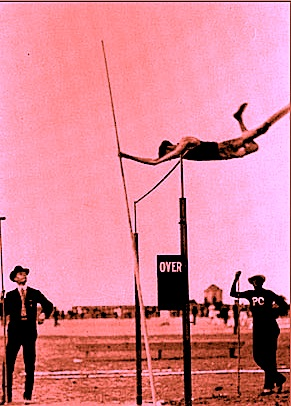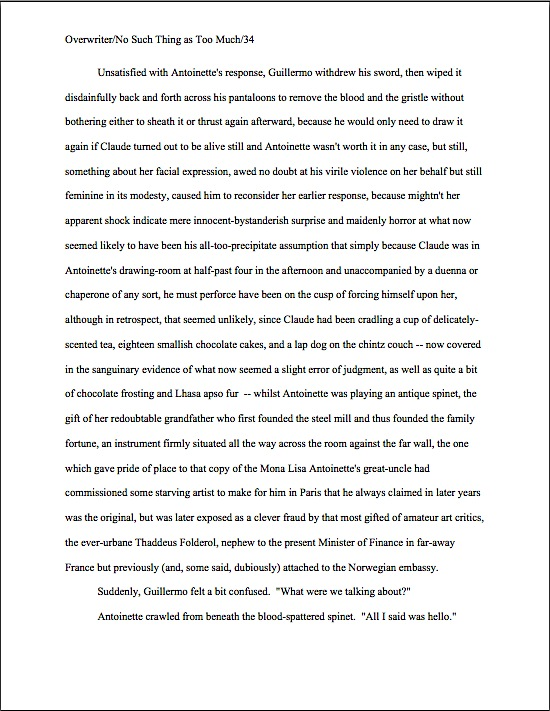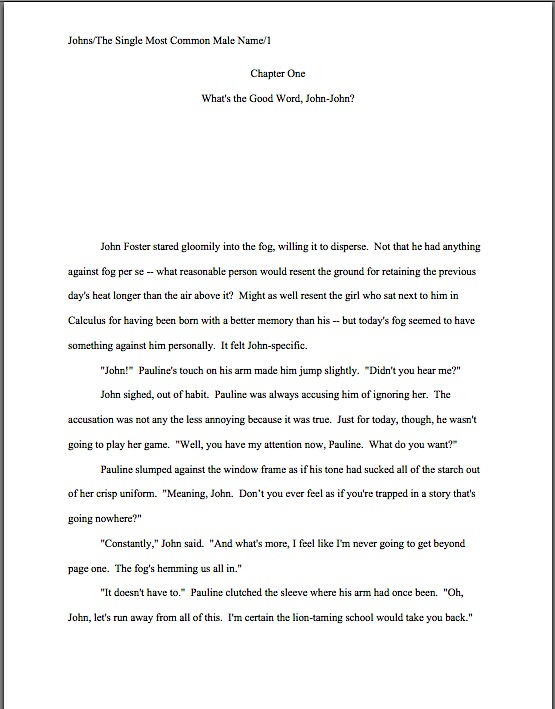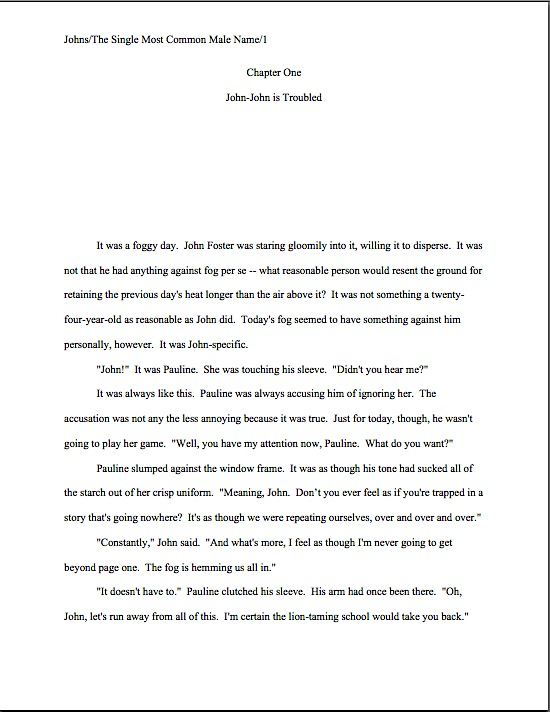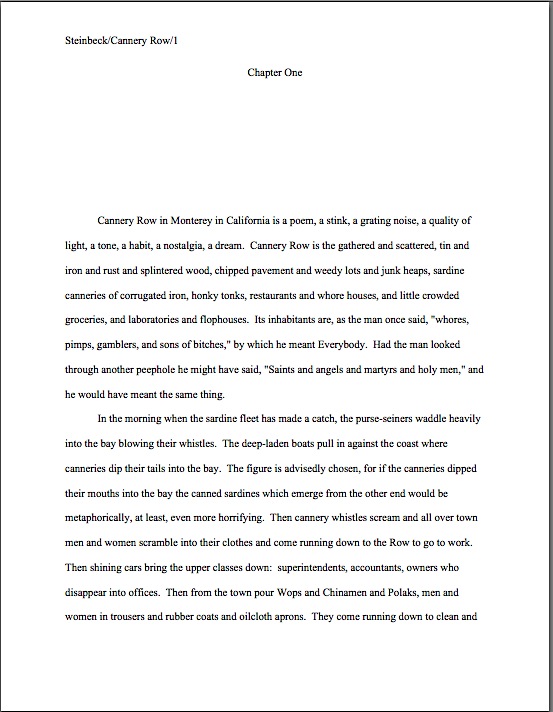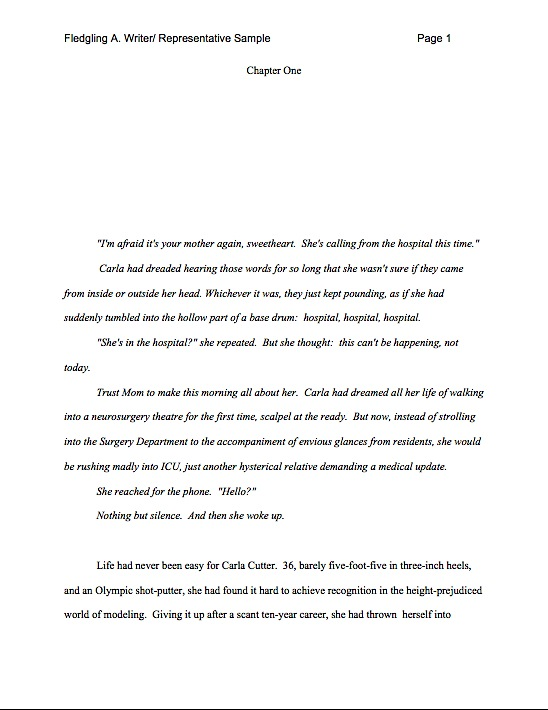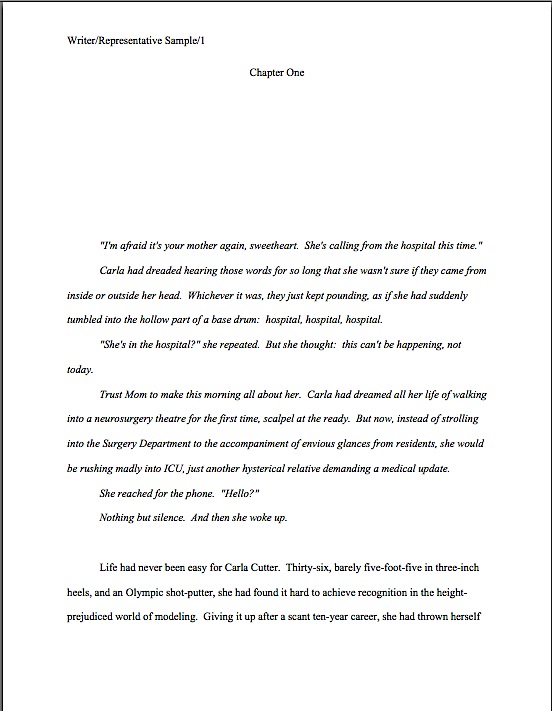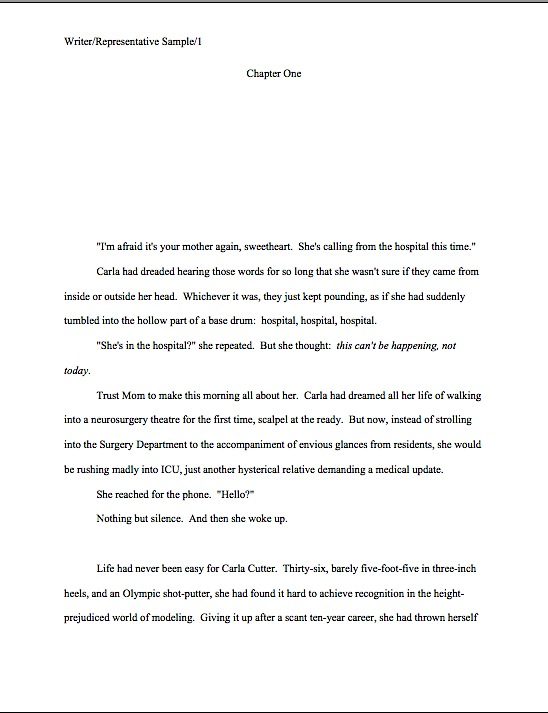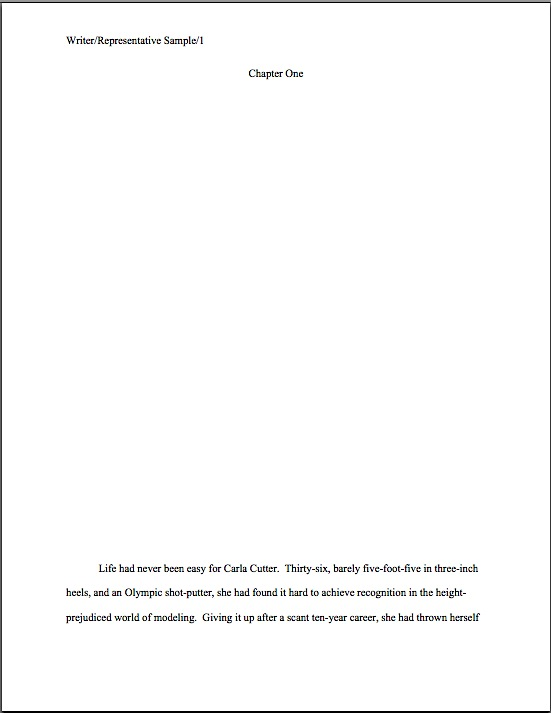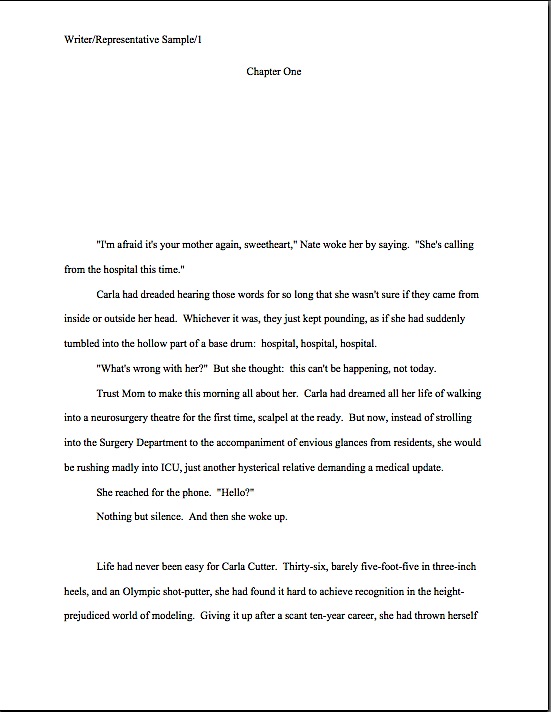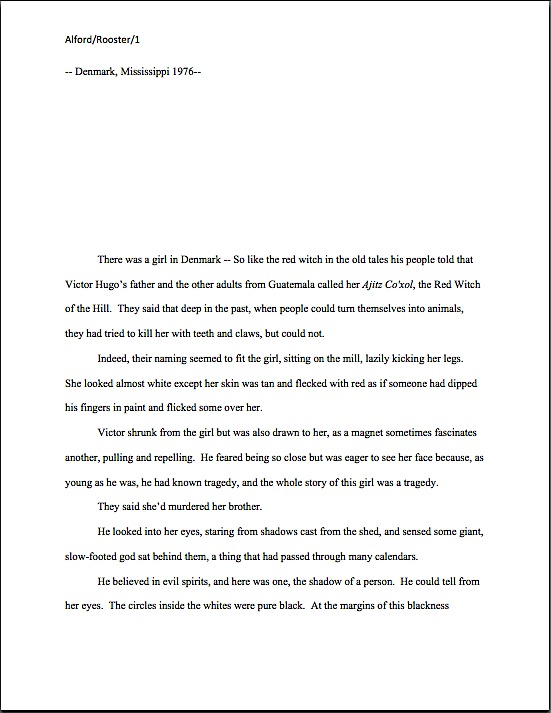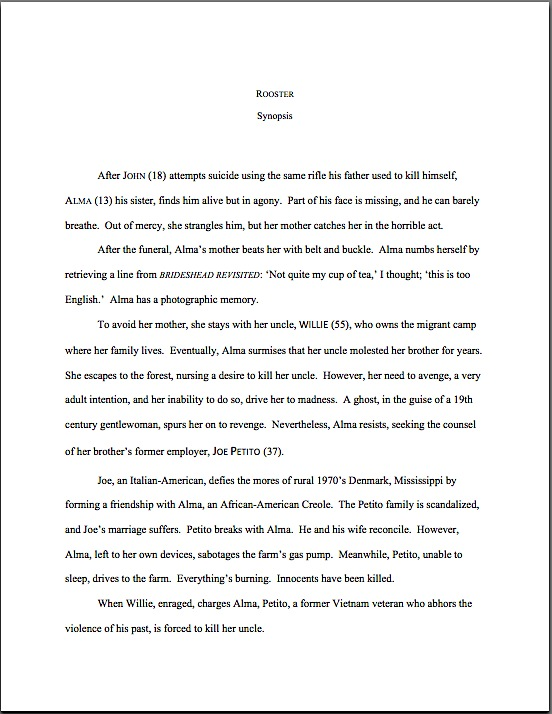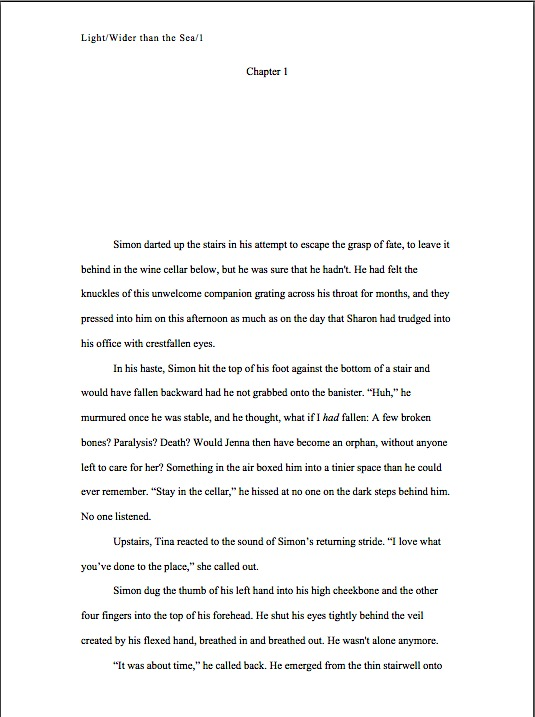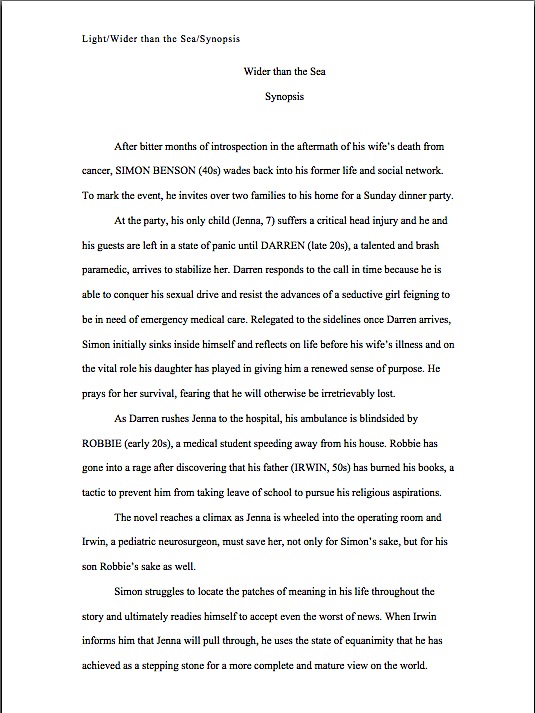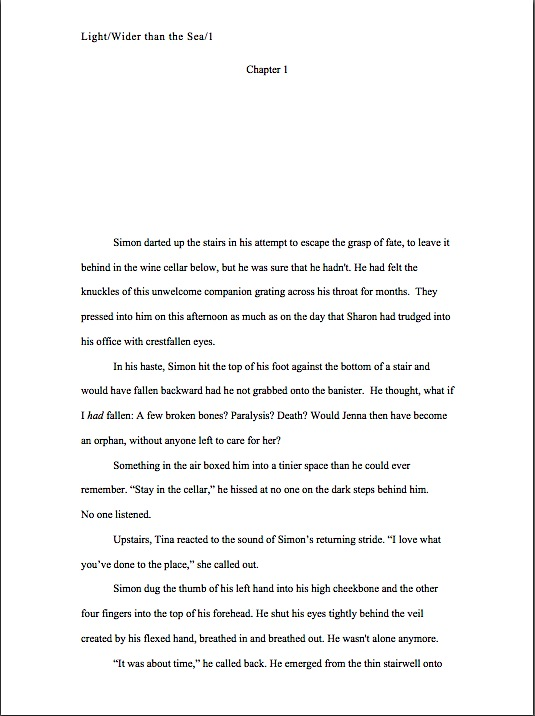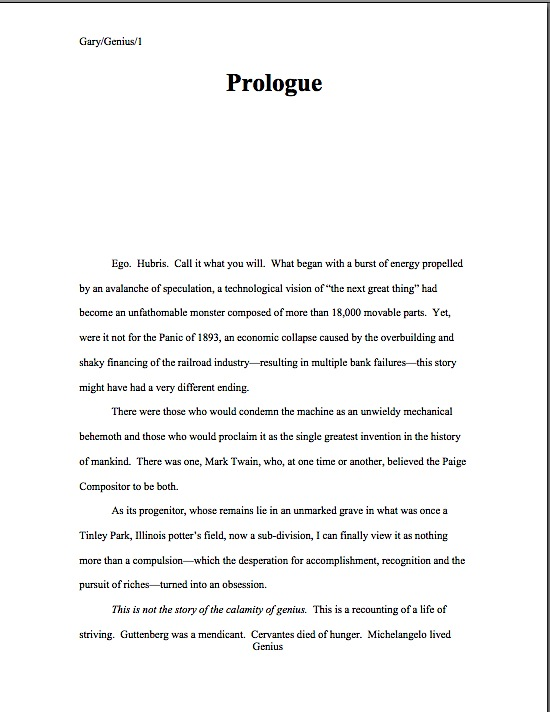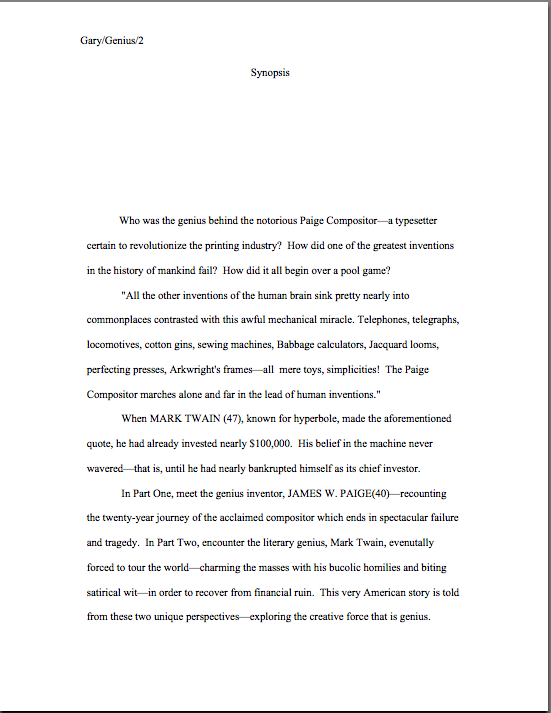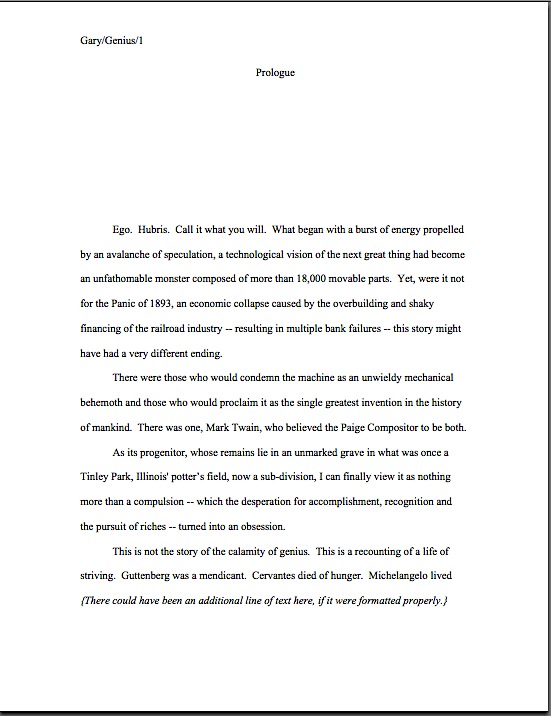Sorry about the unexpected hiatus between my last formatting post and this one, campers; I honestly did mean to follow up within two or three days. My blogging time has been a trifle more difficult to schedule since my car crash, however — I never know when someone is going to decide to pop me into an MRI machine. Or decide to cut my computer use in half.
I’m back on the job this evening, however, and raring to polish off our list of requirements for a professionally-formatted book manuscript. At the risk of repeating myself, allow me to underscore book manuscript: if you are planning to write anything else (say, a short story, article, or a tasty little tidbit for an academic journal), I would strongly urge you to look elsewhere. Different venues for publishing writing have different standards. So while I would always encourage even those writing books to check agency and small publishing house’s submission guidelines — like literary contests, the individuals who evaluate submissions sometimes harbor personal preferences — a writer’s best bet is always to find out how professionals submit their work to that particular venue and emulate it.
Rather than, say, do what most first-time submitters do: simply assume that presentation doesn’t matter if the writing is good. In any writing venue, adhering to its expected presentation will make your work look more professional to the pros, for the exceedingly simple reason that all professional manuscripts circulated by agencies in the United States conform to standard format.
Or, to put it another way, everything that editors at major publishing houses are used to reading, will look like the pages we saw in the first post in this series’ brief visual tour of a properly-formatted manuscript. So does our old pal, Millicent the agency screener.
Why are these expectations important for a writer to bear in mind while preparing a submission? Well, think about it: if editors want manuscripts in standard format (they’re easier to edit that way, incidentally), a savvy agent would make sure that all of her clients’ work adhered to that norm, right? It follows as night the day, then, that taking on a writer fond of formatting his work in any other manner will necessitate training him in professional formatting.
Which — are you sitting down? — pretty much everyone in publishing circles expects a writer serious about seeing his work in print to have invested the time and energy in learning before approaching an agency or publishing house. Knowing how to format a book manuscript properly is a basic professional skill for an author, after all. And arguably, it’s never been easier to pick up that skill.
Of course, those who argue that typically don’t spend much time trawling the Internet for tips. As I’m morally certain won’t come as even a vague surprise to those of you who have discovered this post — and only this post — in the course of an web-wide search on how to format manuscripts, there’s a heck of a lot of conflicting advice out there. Not all of it is equally well-informed, and an astoundingly high proportion fails to mention — as I may have pointed out fifteen or sixteen times throughout the course of this short series — that the rules the site in question is touting should not be applied to all writing, anywhere, anytime.
Why is that supposition problematic? Shall we chant our mantra, writers who have been following this series? Standard format for book manuscripts is not proper for every form of writing known to humanity, anywhere, anytime. It’s for — wait for it — books.
No one is born knowing that, however, nor with the publishing experience to tell good advice from, well, the other kind. I think a excellent case could be made that since the rise of the Internet — and the concomitant rise of the expectation that everything someone new to the publishing world needs to know should be possible to locate in, if not a bullet-pointed list, then at least in a 500-word post appearing on the first page of a Google search of the phrase manuscript format — it’s actually become quite a bit harder for those new to the game to learn the rules.
Understandably, then, many aspiring writers’ response to the plethora of advice floating around out there has been not to seek out the most credible, or even the one that appears to be speaking to the type of books they might happen to be writing, but rather to pick and choose elements from a buffet of options. The inevitable result: Millicent’s inbox has been awash in some rather odd admixtures in recent years. Mixing and matching standard format for book manuscripts, short stories, magazine articles, etc., perhaps with the piquant addition of an element or two from a published book, has become the norm in recent years, not the exception.
Am I correct in concluding that audible intake of collective breath indicates some personal experience with this phenomenon? “But Anne,” buffet-lovers across the world protest, and who could blame them? “I tried to find out how to do it, but there were so many different sets of rules — and virtually all of them barked as orders, instead of explained nicely, as I notice you have tried to do in this series — I just assumed that there wasn’t really a single standard. I can’t be the only one who’s felt this way. If so many of us are submitting our work in ways other than standard format would dictate, why doesn’t Millicent just, you know, lighten up and not pay attention to anything but the writing?”
Oh, you’d like that, wouldn’t you? So would the overwhelming majority of writers trying to break into print. And if the publishing industry were run to please aspiring writers, Millicent might embrace your suggestion with vigor. Ditto if there were not hundreds of thousands of talented writers competing for the limited publication slots in any given book category in any given year.
Which is to say — and you might want to sit down for this one — it’s very helpful to Millicent that so many submissions arrive on her desk incorrectly formatted. Trust me, if she works for a well-established agent, she already receives a few hundred well-written, perfectly-formatted submissions for every opening her boss has for a new client. So if other manuscripts’ formatting allow her to draw the conclusion that their writers would be more time-consuming to represent than those who have made the effort to learn the ropes, well, can you really blame her for regarding them as less professional writing?
I sense some of you grumbling, and with some reason. “What about individual expression?” nonconformists everywhere cry, bless their ornery hearts. “How my writing appears on the page is part of my vision for my book. Why shouldn’t my manuscript reflect that?”
A fine question, and one that richly deserves a direct answer: because non-standard presentation will distract Millicent. In publishing circles, formatting matters like font size, margin width, and whether a new chapter begins on a fresh page are not matters of individual preference; standard format is just that, standard. That means, in practice, that when anything else appears on a submission’s pages, a professional reader’s eye is going to zoom right to it.
So I ask you: which would you rather have Millicent focus upon, your unique formatting vision — or your writing?
Remember, too, that neither Millicent, her boss, the agent of your dreams, nor your future lucky acquiring editor will expect your manuscript to resemble a published book. Standard format differs in many significant respects, from being double-spaced and printed on only one side of the page to how a dash appears on the page.
That comes as a surprise to many aspiring writers: all too often, they assume that deviating from standard format in order to, say, place the first letter of a chapter in a larger font size, or to remove the indentation from its first paragraph, will make sense to Millicent, because it’s sometimes done in published books. The way the manuscript is formatted for submission, they reason, will be their best chance to show their future acquiring editors how they would like to see their books appear in print.
How that reasoning plays out on the page will send a different message to Millicent, unfortunately. To her, as to anyone who reads manuscripts for a living, all such a page conveys is that the writer is not very familiar with the book publishing process. Specifically, the part in which the publishing house, not the author, gets to make the decisions about what the book looks like.
Does that glum silence mean that I’ve convinced you, or merely depressed you into a stupor? Both are quite normal reactions for writers hearing about all of this for the first time, or even the second or third. (Hey, there’s a reason I go over this every year.)
While you’re absorbing it all, let’s go over the rules we’ve discussed so far:
(1) All manuscripts should be printed or typed in black ink and double-spaced, with one-inch margins around all edges of the page, on 20-lb or better white paper.
(2) All manuscripts should be printed on only one side of the page and unbound in any way. For submission to US-based agencies, publishing houses, and contests, the pages in question should be US-standard 8.5″ x 11″ paper.
(3) The text should be left-justified, not block-justified. By definition, manuscripts should not resemble published books in this respect.
(4) The preferred typefaces are 12-point Times, Times New Roman, Courier, or Courier New — unless you’re writing screenplays, in which case you may only use Courier. For book manuscripts, pick one (and ONLY one) and use it consistently throughout your entire submission packet.
(5) The entire manuscript should be in the same font and size — no switching typefaces for any reason. Industry standard is 12-point.
(6) Do not use boldface anywhere in the manuscript but on the title page — and not even there, necessarily.
(7) Every page in the manuscript should be numbered — except the title page. The first page of text is page 1, not the title page.
(8) Each page of the manuscript (other than the title page) should have a standard slug line in the header. The page number should appear in the slug line, not anywhere else on the page.
(9) The first page of each chapter should begin a third of the way down the page. The chapter title should appear on the first line of the page, not on the line immediately above where the text begins.
(10) Contact information for the author belongs on the title page, not on page 1.
(11) Every submission should include a title page, even partial manuscripts.
(12) The beginning of every paragraph of text should be indented .5 inch. No exceptions, ever.
(13) Don’t skip an extra line between paragraphs, except to indicate a section break
(14) Nothing in a book manuscript should be underlined. Titles of songs and publications, as well as words in foreign languages and those you wish to emphasize, should be italicized.
Before we move on, allow me to revisit #14, as it’s one that’s often misinterpreted. There are in fact forms of writing in which it is still quite proper to underline certain words under certain conditions. In a book manuscript (or a book proposal, as it happens), however, this is not acceptable.
No, no matter how much you want to emphasize a word or phrase; italics should be used for that. Ditto for any phrases you might choose to import from a foreign language — you wouldn’t want the agent of your dreams to think you had misspelled a word in English, would you? — and titles of books, songs, newspapers, and magazines. If you should desire to refer to an article, a poem, or a short story, however, those titles should appear within quotation marks.
You’ll find list of the rules for italics use in my last post, but as I’m a great fan of visual examples, here are those principles in action.
Minette waved the paper at him. “Honestly, Patrice, it’s all here in The Anytown, U.S.A. Gazette.”
He shrugged. “Chacun ? son go?t. I prefer to get my news from the moon, the stars, Bridget Jones’ Diary, and ‘The Road Not Taken,” my sweet.”
A less-than-convincing argument from a man whose idea of a first date flick had been Gore on Parade and whose most-quoted rhyme was “There Once Was a Man From Nantucket.” “Oh, look, honey. The article’s even called ‘Stuff Patrice McStubbornhead Habitually Gets Wrong.’ I think it might conceivably speak to you.”
He reached for his guitar. When she was in a mood like this, nothing soothed her so fast as a quick rendition of Greensleeves.
“God, how I hate that song,” she muttered.
Everyone happy with that, at least provisionally? If not, this would be a dandy time to post questions in the comments. Please don’t be shy: believe me, if you have been wondering about any aspect of italics use, so have a quarter of a million of your fellow aspiring writers too shy to speak up.
Do ‘em a favor: ask. While you’re formulating your questions, let’s move on.
(15) Numbers over 100 and those containing decimal points (like currency) or colons (like specific times) should be written as numerals. Numbers under 100 should be written out in word form. Thus, twenty-five is correct; so are 1,473, 2:47 p.m., and $15.90. Page numbers, of course, should appear as numerals.
The instinct to correct this particular set of mistakes when they appear on the submission page is universal in professional readers. That’s potentially problematic for a submission. Why? Well, from that impulse to rejection is often a fairly short journey, because once the notion gee, this writer hasn’t taken the time to how book writing should be presented has occurred to a professional reader, it’s hard to unthink. After that, anything from a major clich? to a minor typo would just seem like corroboration of this uncharitable — and in some cases unfair — conclusion.
Translation: not presenting your numbers correctly will not help you win friends and influence people at agencies and publishing houses. Don’t say I didn’t warn you. This one makes our teeth grind.
It also ties in with the publishing industry’s always-strong sense of its own history. Like pointing out foreign-language words with special formatting, this formatting rule was originally for the benefit of the manual typesetters. When numbers are entered as numbers, a single slip of a finger can result in an error, whereas when numbers are written out, the error has to be in the inputer’s mind.
And honestly, what could a manuscript possibly gain artistically by violating this particular rule? If Millicent will be happier to read text like this:
Abbott/The Great Voyage/82
The sandwich cost $3.76.
On November 11, 1492, fifty-three scholars divided into eighteen parties in preparation for sailing to Antarctica. It took 157 rowboats ten trips apiece to load all of their books, papers, and personal effects onboard.
Rather than (stop it, teeth!) like this:
Abbott/The Great Voyage/Eighty-two
The sandwich cost three dollars and seventy-six cents, cash American.
On November eleventh, fourteen hundred and ninety-two, fifty-three scholars divided into eighteen parties in preparation for sailing to Antarctica. It took a hundred and fifty-seven rowboats ten trips apiece to load all of their books, papers, and personal effects onboard.
Why not humor her? She puts in a long day at a hard job; she doesn’t have time for extra trips to the dentist.
Do I spot some hands waving in the air? “But Anne,” inveterate readers of newspapers protest, “I’m accustomed to seeing numbers like 11, 53, 18, and 72 written as numerals. Does that mean that when I read, say, a magazine article with numbers under 100 depicted this way, that some industrious editor manually changed all of those numbers after the manuscript was submitted?”
No, it doesn’t — although I must say, the mental picture of that poor, unfortunate soul assigned to years of searching tirelessly for those numbers and making such a nit-picky change saddens me. (Hang in there, brother!)
What we have here is yet another difference between book manuscript format and, well, every other kind of formatting out there: in journalism, they write out only numbers under 10. Yet — stop me when the song begins to sound familiar — there are many, many sources out there insisting that the over-10 rule should be applied to all forms of writing, anywhere, anytime. Yes, this is true for newspaper articles, where space is at a premium, but in a book manuscript, it is WRONG, WRONG, WRONG.
Did I mention it was wrong? And that my aged eyes have actually seen contest entries knocked out of finalist consideration over this issue? More than once? And within the last year?
AP style differs from standard format in several important respects, not the least being that in standard format (as in other formal presentations in the English language), the first letter of the first word after a colon should not be capitalized, since technically, it’s not the beginning of a new sentence. I don’t know who introduced the convention of post-colon capitalization, but believe me, I’m not the only one who read the submissions of aspiring book writers for a living that’s mentally consigned that language subversive to a pit of hell that would make even Dante avert his eyes in horror.
That’s the way we nit-pickers roll. We like our formatting and grammatical boundaries firm.
Heck, compared to most professional readers, my feelings on the subject are downright non-confrontational. I’ve been in more than one contest judging conference where tables were actually banged, modern societies deplored, and the rise of the personal computer berated to the skies.
Again, I ask you: do you really want your contest entry to be the one that engenders this reaction?
So let’s all shout it together, shall we? The formatting and grammatical choices you see in newspapers will not necessarily work in manuscripts or literary contest entries.
Everyone clear on that? Good, because — are you sitting down, newspaper enthusiasts? — embracing journalistic conventions like the post-colon capital and writing out only numbers under ten will just look like mistakes to Millicent and her ilk in a book manuscript.
And no, there is no court of appeal for such decisions; proper format, like beauty, is very much in the eye of the beholder. So if you were planning to cry out, “But that’s the way The New Moreford Journal-Sentinel does it!” save your breath.
Although my aforementioned heart aches for those of you who intended to protest, “But how on earth is an aspiring writer to know that the standards are different?” this is a cry that is going to fall on deaf ears as well. The sad fact is, submitters rejected for purely technical reasons are almost never aware of it. With few exceptions, the rejecters will not even take the time to scrawl, “Take a formatting class!” or “Next time, spell-check!” on the returned manuscript. If a writer is truly talented, they figure, she’ll mend her ways and try again.
And that, in case any of you lovely people had been wondering, is why I revisit the topic of standard format so darned often. How can the talented mend their ways if they don’t know how — or even if — their ways are broken?
(16) Dashes should be doubled — rather than using an emdash, as my blogging program forces me to do — with a space at either end. Hyphens are single and are not given extra spaces at either end, as in self-congratulatory.
Yes, yes, I know: you’ve probably heard that this rule is obsolete, too, gone the way of underlining, large advances for novelists, and the dodo. The usual argument for the doubled dash’s demise: books no longer preserve these spaces, for reasons of printing economy, so many writing teachers tell their students just to go ahead and eliminate them. An AP-trained teacher will tell you to use the longer emdash, as will the Chicago Manual of Style.
In this, however, they are wrong, at least as far as manuscripts are concerned. But you’re starting to get used to that, right?
Your word-processing program probably changes a double dash to an emdash automatically, but CHANGE IT BACK. If only as a time-saver: any agent would make you do this before agreeing to submit your manuscript to an editor, so you might as well get into this salutary habit as soon as possible.
Don’t stand there and tell me that you’ve seen the long dash in countless published books, or that those self-same volumes have not placed a space between the dashes in question and the words on either side. None of that is relevant. Standard format is invariable upon this point: a doubled dash with a space on either end is correct; anything else is not.
And whatever you do, don’t fall into the trap of doing it properly only when you think about it, or not doing a search for it before you submit your manuscript. It may seem like a minor, easily-fixable phenomenon from the writer’s side of the submission envelope, but believe me, inconsistency drives people trained to spot minor errors nuts. Seriously, the pros bemoan how often they see manuscripts in which this rule is applied inconsistently: two-thirds of the dashes doubled, perhaps, sometimes with a space at either end and sometimes not, with the odd emdash and single dash dotting the text as well.
Remember, consistency is not only a hallmark of a well-developed authorial voice; it’s a sign of professionalism in formatting, too. Or did you expect your future agent to invest the time in cleaning up your formatting and/or punctuation before submitting your work to editors? Even in the unlikely event that he would be willing to do it — good agents are very busy people — wouldn’t that expectation mean that he could never send out any of your writing without proofreading it?
As opposed to, say, a writer who had already gotten into the professional habits of consistent dash formatting and proofreading?
I’m going to leave the consistency-haters among you — oh, I know you’re out there — to ponder that one while the rest of us move on. Those who have spent the last few paragraphs resenting the necessity of going over your manuscript in this detail prior to submission will be pleased to hear that the next rule is one that will eat up very little of your time.
(17) Turn off the widow/orphan control in your Word program; leaving it on can result in pages containing varying numbers of lines.
Told you so: this is something that can be accomplished by highlighting your entire text (the shortcut for that in Word is COMMAND + A), then pulling down the FORMAT menu. Select PARAGRAPH…, then LINE AND PAGE BREAKS. Un-check the Widow/Orphan control box.
Voil? ! Every full page of text will have the same number of lines!
Oh, those of you new to the term would like to know why you did that, would you? Fair enough: as some of you clever souls may have already surmised, the widow/orphan control dictates how many lines appear on any given page. The default setting prevents the first line of a new paragraph from being left alone on a page if the rest of the paragraph is on the next (a line so left behind is called an orphan) or the last line of a paragraph begun on a previous page from appearing at the top of the next page all by itself (and that’s called a widow). Thus, if the widow/orphan control is left on, lines will be stolen from one page and added to the ones before and after.
Result: some of your pages will have more lines of text on them than others. Why might that be problematic? Well, unless your pages are standardized, you can’t justify estimating your word count (at # of pages x 250 in Times New Roman). Since word counts for book-length projects are expected to be estimated (you’ll need to use the actual count for short stories or articles), and actual count can be as much as 20% higher than estimated, it’s certainly in the best interest of anyone who tends to run a little long to estimate.
And even if your manuscript isn’t over 400 pages (100,000 words, estimated) — the time-honored dividing line for Millicent to cry, “Oh, too bad; it’s too long for a first novel in this book category. Next!” — she’s going to dislike seeing an extra inch of white space on the bottom of some of your pages. Not necessarily enough to shout, “Next!” all by itself, but need I ask you again if this is the response you want your writing to evoke?
I thought not. Let’s tackle the last rule.
(18) Adhere to the standard rules of punctuation and grammar, not what it being done on the moment in newspapers, magazines, books, or on the Internet.
In other words, “But I’ve seen other writers violate that rule!” is not going to fly here. Assume that Millicent graduated with honors from the best undergraduate English department in the country (or at least the fifteenth-best), taught by the grumpiest, meanest, least tolerant stickler for grammar that ever snarled at a student unfortunate enough to have made a typo, and you’ll be you’ll have set the level of proofreading concern just about right.
Why? Well, if you can bear yet another rhetorical question, do you really want to encourage Millicent to wonder whether you broke a rule on purpose — or if you simply were not aware of it?
Grammar aside, there’s been a tendency in recent years for submissions to ape the trend of paper-saving publishers across writing types to leave only one space, rather than the standard two, after a period or colon. The rationale runs thus: printed books often do this now: the fewer the spaces on a page, the more words can be crammed onto it. Since we’ve all seen it done in recently-released books, some argue — and vehemently — it would be ludicrous to format a manuscript any other way.
Indeed, some insist that the single-space convention is the ONLY way to format a manuscript. A number of writing-advice websites, I notice, and even some writing teachers have been telling people that this is the wave of, if not the present, then at least the future. They aver that adhering to the two-space norm makes a manuscript look old-fashioned. Some even claim that retaining the second space is a universal instant-rejection offense.
At the risk of sounding like the harsh grammar-mongers of my youth, poppycock. Agents, very good ones, routinely submit manuscripts with doubled spaces to editors, also very good ones, all the time. Successfully. That might be due to the fact that most editors who deal with manuscripts in hard copy actively prefer it.
Truth compels me to point out, though, that there are also agents, good ones, who have embraced the single-space convention, and quite adamantly. It’s become a less common preference over the last few years, but those who feel strongly about it tend to — you can see it coming, right? — feel strongly about it. In practice, the doubled space is still the norm — except amongst the minority who insist that it is not. In either case, though, it’s not a common rejection criterion.
Clear as pea soup, right?
So which convention should you embrace? The answer, as it so often is, involves doing your homework about the specific agent or publisher you are planning to approach, rather than treating submissions, as so many aspiring writers do, as generic. It’s always a good idea to check each and every agency’s submission guidelines before tossing that manuscript in the mail, anyway .
Fortunately for aspiring writers everywhere, agents with a strong preference for the single space tend not to keep mum about it. If they actually do tell their Millicents to regard a second space as a sign of creeping obsolescence, chances are very, very good that they’ll mention that fact on their websites. If you happen to be submitting to folks who specifically asks for single spaces, by all means, bow to their expressed preferences.
Sensing a pattern here?
Spoiler alert: once you get in the habit of doing that research, I suspect those of you who have heard horror stories about how everybody now positively hates the second space convention will be astonished to see how few agencies even mention it in their submission guidelines. If they don’t, it’s usually safe to assume that they adhere to the older convention — or don’t care.
Why should that be the default option, since proponents of eliminating the second space tend to be so very vocal? Those who cling to the older tradition tend to be, if anything, a shade more vehement.
Why, you ask? Editing experience, usually. Preserving that extra space after each sentence in a manuscript makes for greater ease of reading, and thus of editing. As anyone who has ever edited a long piece of writing can tell you, the white space on the page is where the comments — grammatical changes, pointing out flow problems, asking, “Does Ambrose the Bold really need to die so peacefully?” — go.
Less white space equals less room to comment. It honestly is that simple.
And just between us, it drives traditional-minded grammar-hounds nuts to hear that time-honored standards must necessarily be jettisoned in the name of progress. “What sane human being,” they ask through gritted teeth (I wasn’t kidding about those trips to the dentist), “seriously believes that replacing tonight with tonite, or all right with alright constitutes betterment of the human condition? Does any literate person genuinely believe that a colon means a new sentence has begun? Dropping those letters and spaces doesn’t even save significant page space!”
They have a point, you must admit. Yet as rule-seeking web-crawlers have no doubt discovered, traditionalists tend not to be nearly so well-represented online — nor so vitriolic in their condemnations — as advocates of the new. I don’t think that’s merely because proper grammar and spelling do not really require defense; to literate people, they just look right. I suspect that it’s for the same reason that agents and editors don’t habitually go online to check out what people are logging into any particular writers’ forum to suggest is the current rage in formatting: if you already know the rules, why would you be looking online for them?
Then, too, there’s a practical reason: until everyone in the industry makes the transition to editing in soft copy — which many of us find significantly harder and less efficient than scanning a printed page — the two-space rule is highly unlikely to change universally. Just ask a new agent immediately after the first time she’s submitted to an old-school senior editor: if she lets her clients deviate from the norms, she’s likely to be lectured for fifteen minutes on the great beauty of the English language and the imperative to protect its graceful strictures from the invading Goths, Visigoths, and journalists.
I sense that some of you are beginning to wring your hands and rend your garments in frustration. “I just can’t win here! Most want it one way, a few another. I’m so confused about what’s required that I keep switching back and forth between two spaces and one while I’m typing.”
Again, you might want to sit down for this one: inconsistent formatting is likely to annoy both sides of the aisle. Whichever choice you embrace, be consistent about it throughout your manuscript; don’t kid yourself that an experienced professional reader isn’t going to notice if you sometimes use one format, sometimes the other.
He will. So will a veteran contest judge. Pick a convention and stick with it.
But I wouldn’t fret over it too much. This honestly isn’t as burning a debate amongst agents and editors as many aspiring writers seem to think — and definitely nowhere near the snarling division so many online sources were claiming it was ten yeas ago. But as always: check before you submit.
And be open to the possibility — remember, I already advised you to sit down — that you may need to submit your manuscript formatted one way for a single agent on your list, and another for the other nineteen. That needn’t worry you at the querying stage, of course, but it might affect the order in which you will want to submit your work if, say, four of them ask to see your manuscript.
Hey, you’re busy, too, right? And it’s not as though what I’ve been suggesting throughout this series isn’t going to require setting aside some time to tinker with your manuscript. I realize that if you already have a full manuscript formatted in any other way, the very notion of applying all of these rules may seem intimidating.
Which is, if you will excuse my saying so, an awfully good reason to get into the laudable habit of writing your manuscripts in standard format from the get-go — in the long run, it will save you time to be consistent about applying the rules. It’s a very sensible long-term investment in your writing career, after all. Literally every page you will be showing to your future agent or editor will need to look like this; why not use the opportunity to practice the rules until they are imbedded into your very bones?
That, too, I shall leave you to ponder; I recognize that it’s a commitment. But doesn’t your good writing deserve the best possible presentation you can give it? Keep up the good work!
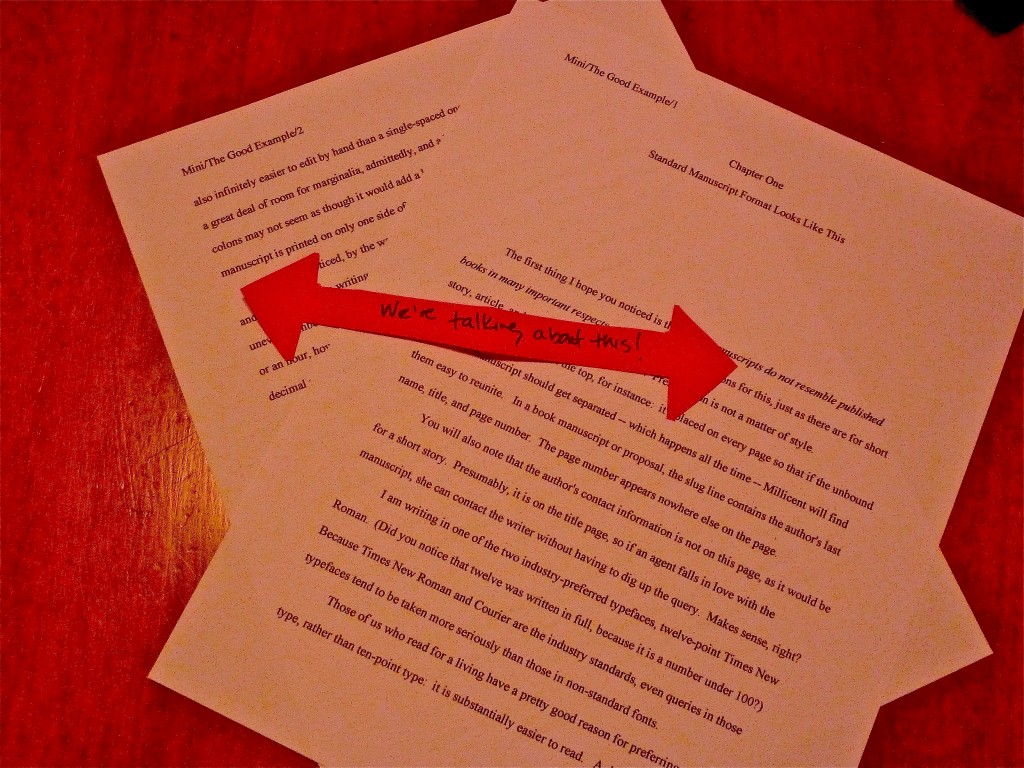

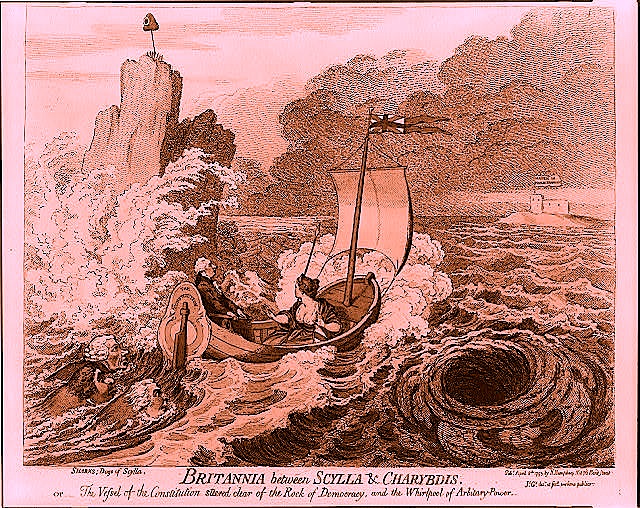
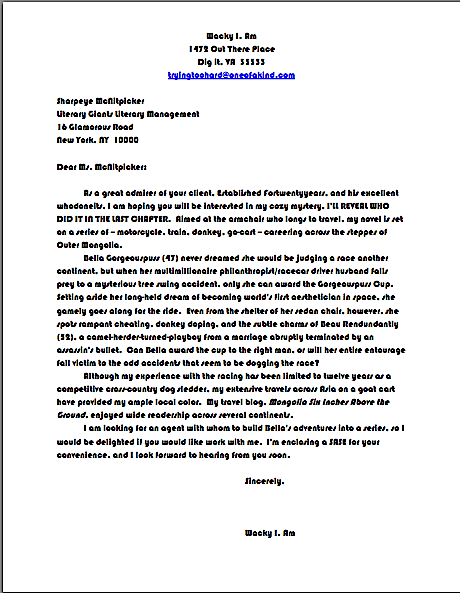

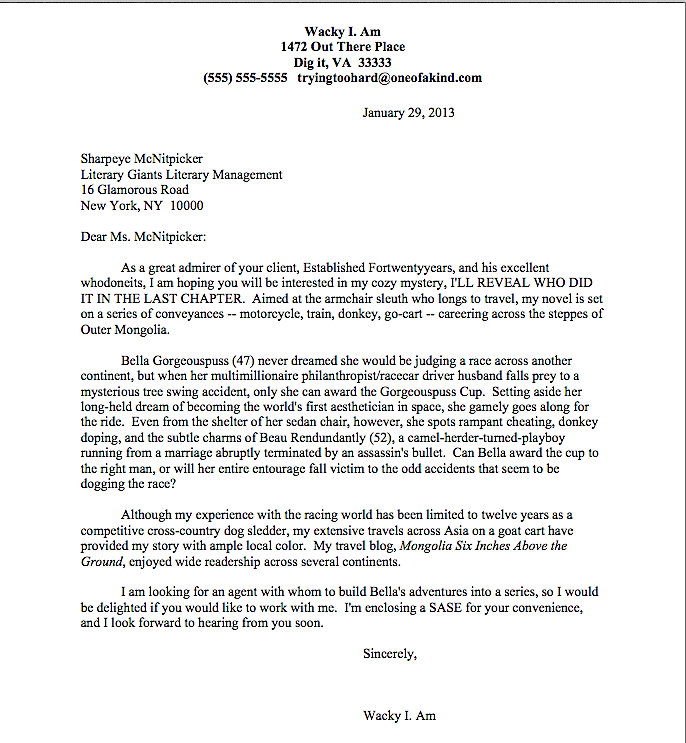
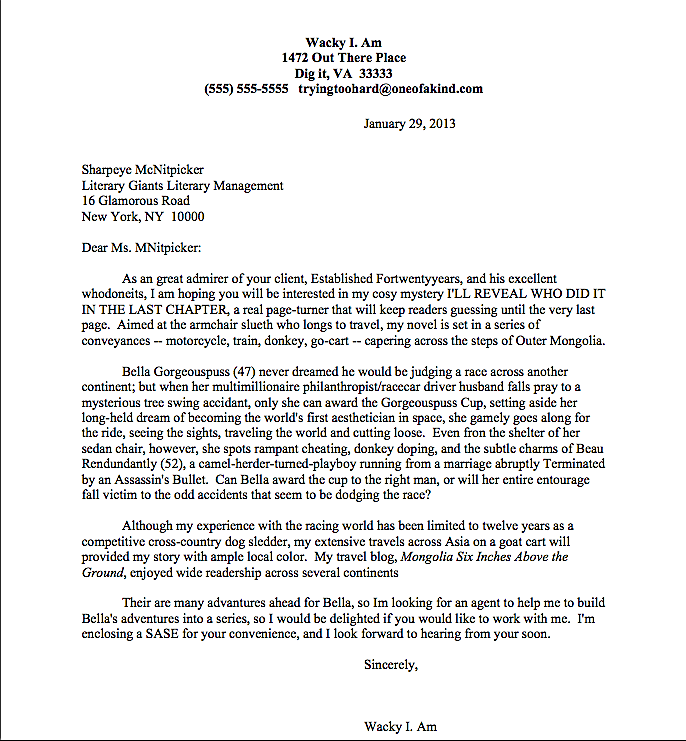



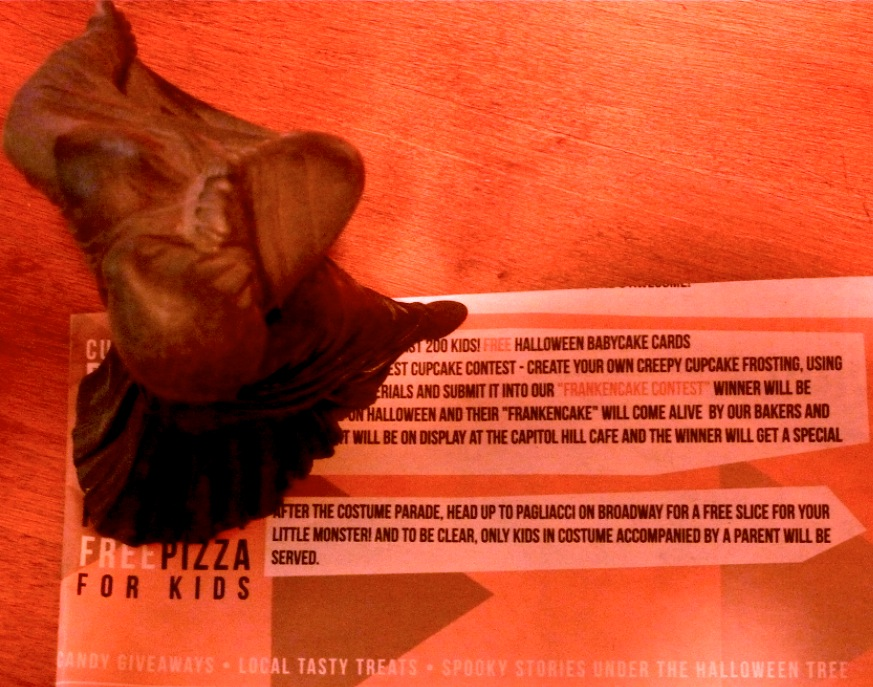
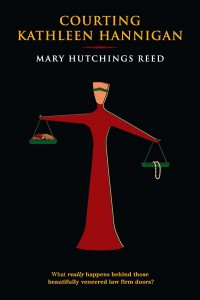

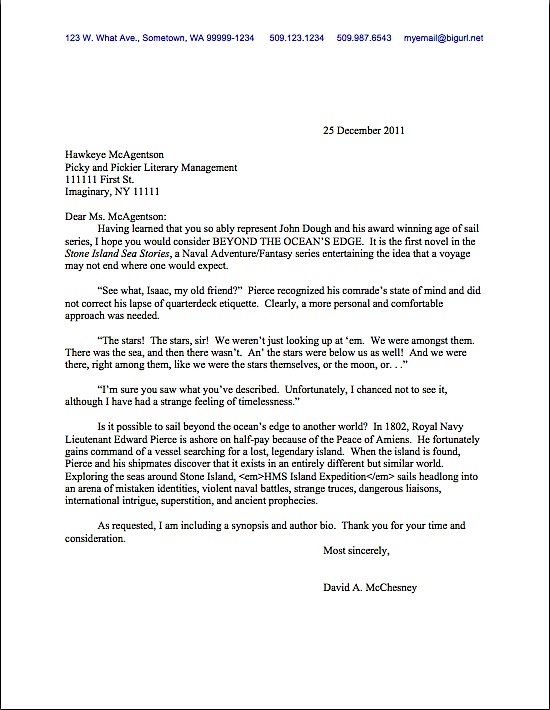
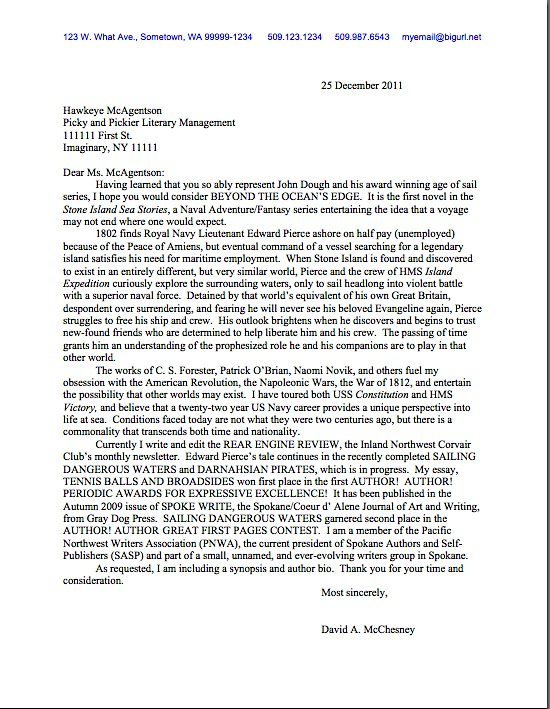
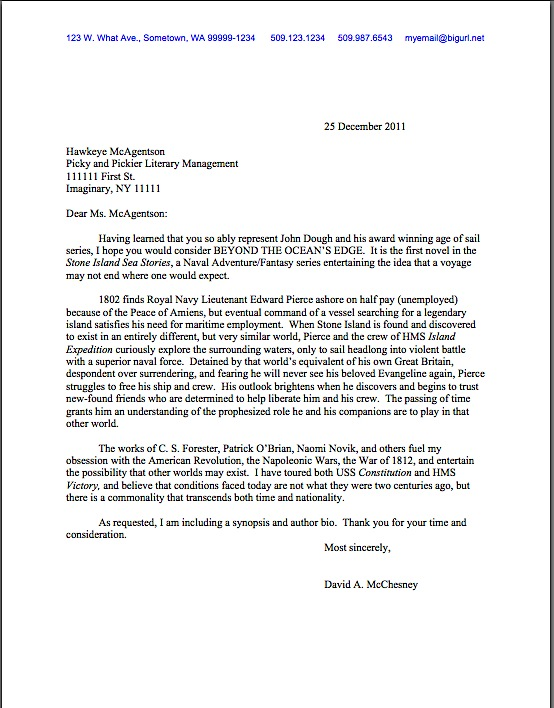
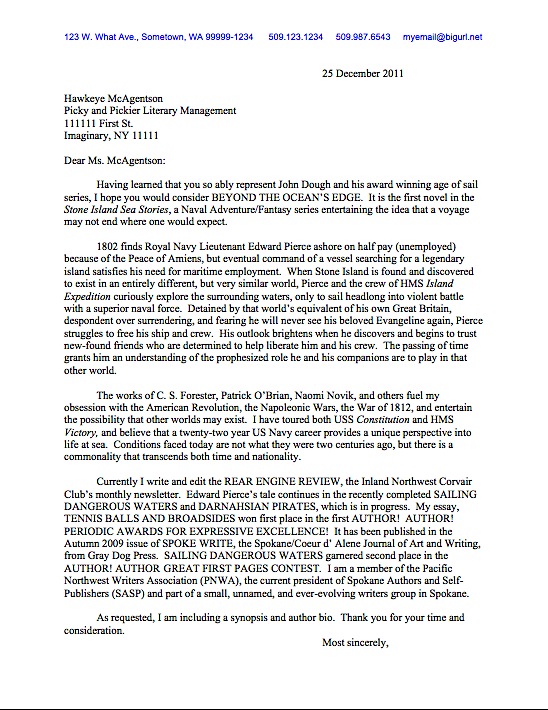
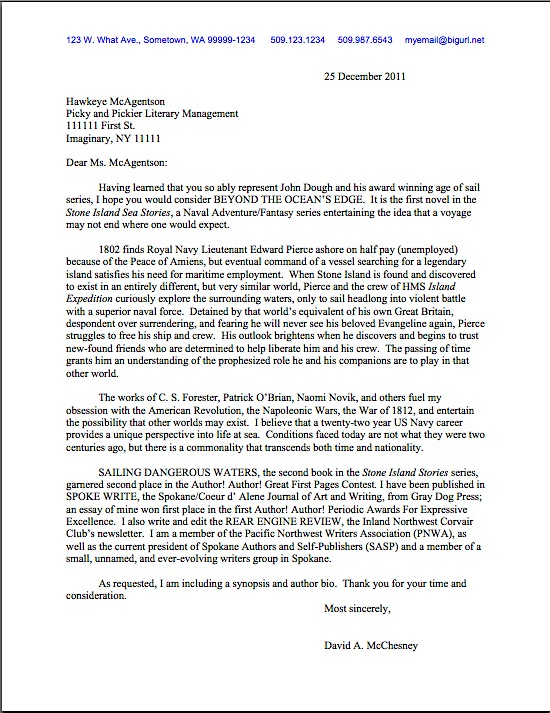
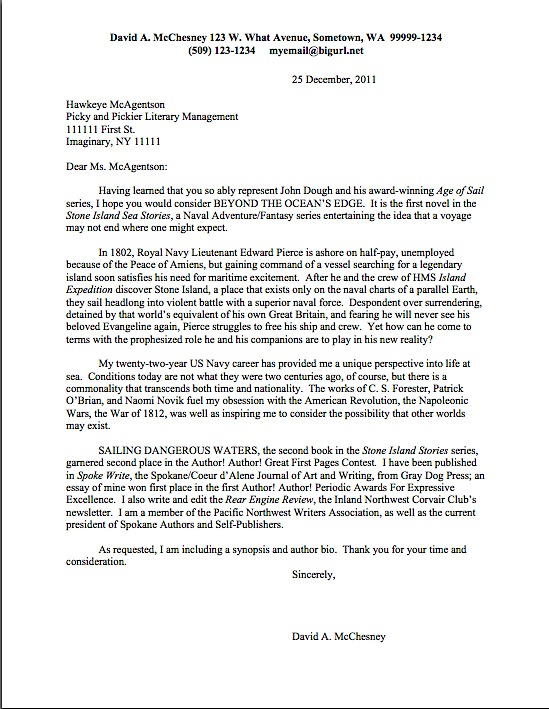


 A query’s descriptive paragraph describes the manuscript; a synopsis summarizes it. The query presents the premise and central conflict (or, for nonfiction, the subject matter and central question), while the summary gives a complete, if brief, overview of the plot, including some indication of its resolution.
A query’s descriptive paragraph describes the manuscript; a synopsis summarizes it. The query presents the premise and central conflict (or, for nonfiction, the subject matter and central question), while the summary gives a complete, if brief, overview of the plot, including some indication of its resolution.